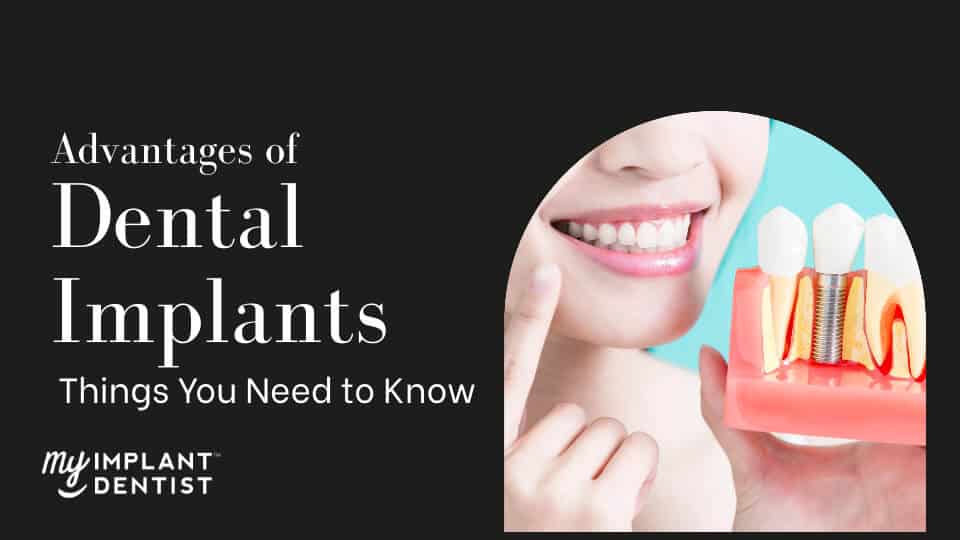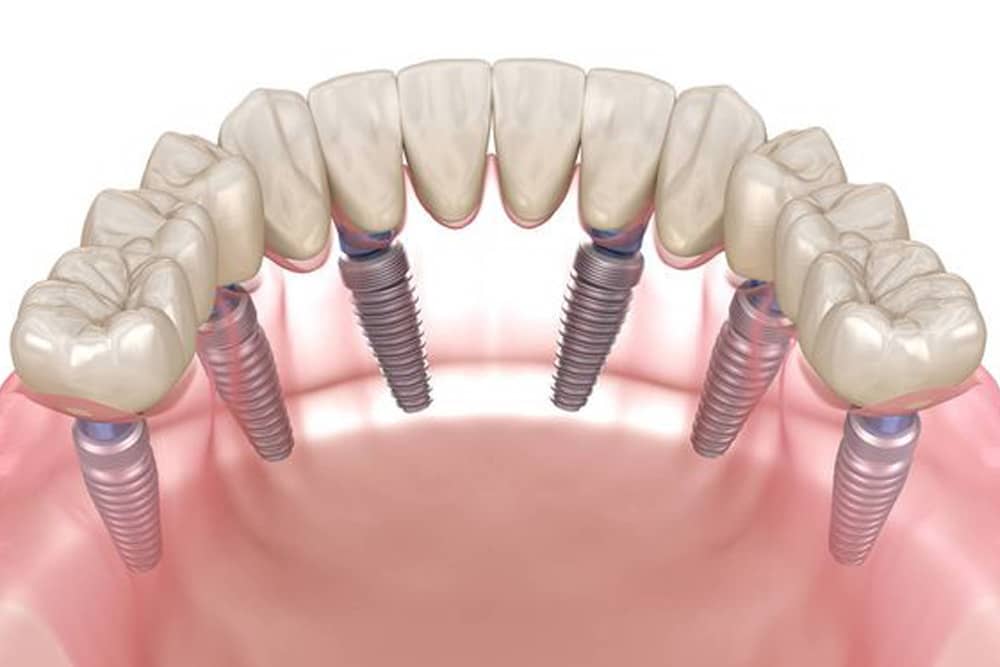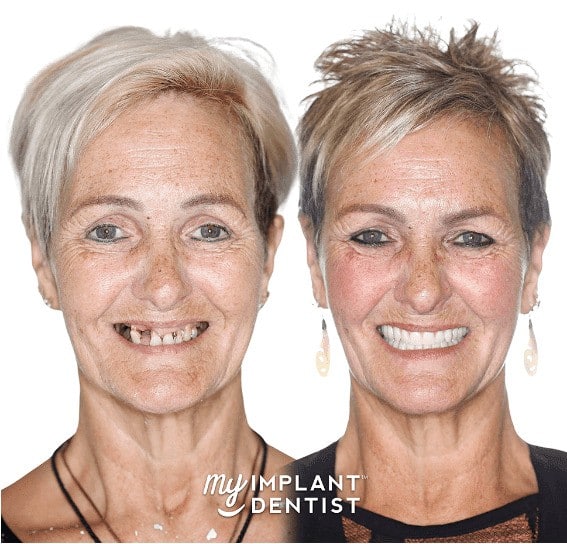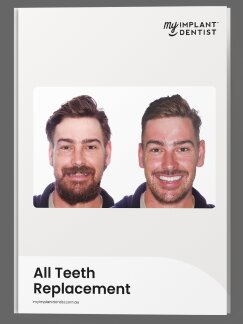Contents
- 1 What Are the Advantages of Dental Implants?
- 2 Questions You Need to Know Before Having Dental Implants
- 3 Our Solutions and Services
- 4 How can I get insurance coverage for dental implants?
- 5 Can you get immediate dental implants?
- 6 Who is not eligible for dental implants?
- 7 How long do teeth implants last?
Use a dental implant checklist to find out if you need an implant. It is critical to recognise that dental implants are not the same as traditional crowns and bridges, root canal therapy, or fillings in terms of treatment. The significant distinction stems from the fact that dental implants necessitate both surgical and restorative expertise, as well as extensive training outside of traditional dental school programs.
Despite advances in dental care, millions of Australians lose their teeth, most of which are caused by tooth decay, periodontal disease, or injury. At Bridges, dentures were the only treatment option for people missing teeth for many years. With dental implants, people can have their missing teeth replaced anytime.
Tooth implants are titanium implants that are surgically implanted into the jawbone to replace missing teeth. The implants will gradually bond with the bone over the next few months, forming a solid and stable foundation for your new teeth.
The implants are then fitted with small posts, which are then covered with artificial teeth (your restorative dentist completes this portion of the treatment).
Dr Kent Tan can refer you to a dentist specialising in dental implants if you don’t have one. The new teeth have a natural appearance and allow you to eat almost any food. Read on to learn if you need implants and where to get affordable tooth implants in Brisbane.
What Are the Advantages of Dental Implants?
Dental implants have several advantages, including:
1. Improved appearance – Dental implants have the appearance and feel of natural teeth. Because they are designed to fuse with the bone, they are also permanent.
2. Improved speech – Ill-fitting dentures can cause you to mumble or slur your words as the teeth move around in your mouth. Tooth implants allow you to speak freely without worrying about your teeth falling out.
3. Comfortable – Implants eliminate the discomfort of removable dentures because they become a part of you.
4. Improved oral health – Dental implants, unlike a tooth-supported bridge, do not necessitate the reduction of other teeth. More of your natural teeth are preserved because nearby teeth aren’t changed to support the implant, which improves your long-term oral health. Individual implants also make it easier to brush and floss between teeth, which improves oral hygiene.
5. Easier to eat – Chewing can be difficult with sliding dentures. Dental implants function similarly to natural teeth, allowing you to eat your favourite foods with confidence and without pain.
6. Improved self-esteem – Dental implants can help you regain your smile and improve your self-esteem.
7. Durability – Dental Implants have a long lifespan and can last for many years. With proper care, many implants can last a lifetime.
8. Convenience – Removable dentures are precisely that: they can be taken out. With Dental implants, you don’t have to worry about having to remove dentures, same with the need for messy adhesives to keep them in place.
Questions You Need to Know Before Having Dental Implants
These are important questions to ask yourself because they are part of the dental implant checklist.
How is Your Bone Density?
Dental implants (Titanium ) are placed into your jaw bone, where your teeth are attached to your mouth at the root for effective permanence. You’ll need a decent amount of bone density for your full-mouth implants to fuse with your bone.
If you have a disease like osteoporosis, you could be on the verge of becoming a candidate. Fortunately, My Implant Dentist has the experience and tools to assist those in the early stages of the disease. So, if you’re unsure, schedule an appointment with one of our prosthodontists.
Do You Have Periodontal Disease?
Gum disease such as Periodontal disease weakens the gums and eventually eats away at the jawbone. Some dental implant companies may refuse to work with patients who have this disease.
Are You Going Through Chemotherapy?
You may experience complications with your implant surgery if you’ve had chemotherapy. Your body’s ability to bond with the implants may be hampered by recent chemotherapy treatment. But all hope is not lost. Because each patient is treated individually, you may still be eligible for dental implants depending on how long ago your radiation treatment was.
Our Solutions and Services
When you have checked a dental implant checklist and have decided to get implants, it’s time to consult your implant dentist. My Dental Implants transformS patients’ smiles, but the procedure for receiving dental implants is simple. When you choose My Dental Implants, getting the brilliant smile you’ve always wanted is as easy as three steps.
Step 1: Your implant dentist will meet with you for a personalised consultation during which they will examine your teeth, walk you through the My Dental Implants procedure, and address any concerns or questions you may have.
Step 2: Your dentist will clean and prepare your mouth before placing your custom-made Implant Bridge, which is made of a durable, stain-resistant material that looks and feels completely natural.
Step 3: Your dentist will fabricate and permanently attach your Implant Bridge three to six months after your implant has been placed. Then the dentist will make any necessary adjustments to ensure a perfect and comfortable fit.
At My Dental Implants, dental implants are low-maintenance so you can resume your routine immediately after your appointment! At home, brush and floss your teeth, as usual, visit your dentist regularly to ensure your implants are in good working order and enjoy life with your new smile.
How can I get insurance coverage for dental implants?
A dental implant is not covered by the majority of basic dental insurance policies. Look into cosmetic dental procedure coverage, which can help cover the cost of dental implants. Your dental implant insurance coverage could be up to 50% of the procedure’s cost, which means you’ll be covered for half of the cost.
Can you get immediate dental implants?
Simply put, same-day dental implants are the most practical way to achieve a beautiful new smile. So, rather than waiting weeks or months at your dentist’s office for new teeth, you can get everything done in one visit.
Who is not eligible for dental implants?
Because dental implants must be held firm with a solid bone, those with low bone mass or density who do not have enough bone structure to hold an implant in place are not suitable.
Dental implants need to be held firmly by a strong bone mass. Therefore, it is not suitable for those with low bone mass or density. This is the purpose of a dental implants checklist.
How long do teeth implants last?
As long as the patient visits the dentist every six months, the implant screw can last a lifetime with proper flossing and brushing. The crown, on the other hand, usually lasts only 10 to 15 years before it needs to be replaced due to wear and tear.
Related Articles:






















